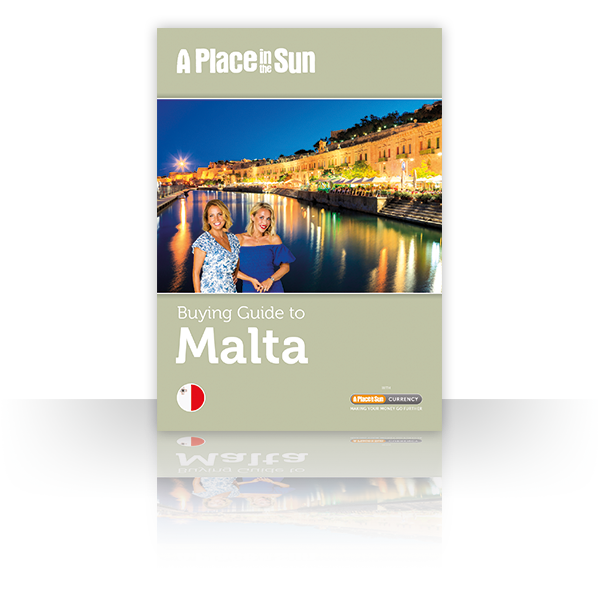-
Find your place in the sun
- Home
-
Property Search
- Property Search
-
Property in Spain
- Property in Spain
- Almeria
- Costa Blanca
- Costa del Sol
- Costa Brava
- Costa de la Luz
-
Costa Tropical
- Costa Tropical
- La Herradura
- Almuñécar
- Salobreña
- Motril
- Murcia
- Valencia
- Inland Andalucia
-
Canary Islands
- Canary Islands
- Tenerife
- Fuerteventura
- Lanzarote
- Gran Canaria
- Balearic Islands
- All Areas
- Property in France
-
Property in Portugal
- Property in Portugal
- Algarve
- Albufeira
- Lagos
- Lisbon Coast
- Silver Coast
- All Areas
- Property in Italy
-
Property in Greece
- Property in Greece
- Aegean Islands
- Corfu
- Crete
- Halkidiki
- Ionian Islands
- All Areas
- Property in Florida
- Property in Cyprus
- Property in Turkey
- Search all countries
- New Developments
- Find an agent in...
- Most Popular Properties
-
-
Help & Guides
- Help & Guides
- How to Buy
- Area Guides
- Free Guide Download
- Professional Services
- Currency
- Mortgages
- Insurance
-
Relocation
- Relocation
-
Moving to Spain
- Moving to Spain
- Buying property in Spain
- Living in Spain
- Retiring to Spain
- How to move to Spain
-
Moving to France
- Moving to France
- Buying property in France
- Living in France
- Retiring to France
-
Moving to Portugal
- Moving to Portugal
- Buying property in Portugal
- Living in Portugal
- Retiring to Portugal
-
Moving to Italy
- Moving to Italy
- Buying property in Italy
- Living in Italy
- Retiring to Italy
-
Moving to Cyprus
- Moving to Cyprus
- Buying property in Cyprus
- Living in Cyprus
- Retiring to Cyprus
- Moving to Malta
- Find a Lawyer
- Viewing Trips Guide
- Articles
- Webinars
- New Developments
- Live Events
-
TV Show
- TV Show
- Episodes
- Presenters
- Apply
- Advertise with us
-
- Sign up / sign in
- Currency
- Find an agent
- Advertise with us
Healthcare in Malta
 Despite its diminutive size, Malta has been rated as offering some of the best healthcare in the world.
Despite its diminutive size, Malta has been rated as offering some of the best healthcare in the world.
The healthcare system in Malta
In 2000, Malta was ranked number five in the World Health Organization's ranking of the world's health systems, and it closely resembles the UK’s NHS in being free at the point of delivery.
It’s one of the factors that makes it so attractive to retirees and expats, along with highly evolved financial services and amenities.
The Maltese state healthcare system is extensive and covers many services including specialist treatment, inpatient care, prescriptions, antenatal and postnatal care. Along with the state (public) healthcare system, known as the government healthcare service, there’s the private system.
The public healthcare system provides free services to all Maltese citizens and European Union residents with a European Health Insurance Card (EHIC). Non-EU citizens living in Malta must obtain private healthcare insurance.
UK nationals can access the Maltese healthcare system for free in a number of ways, including if they are working and paying social security contributions, have an EHIC or (new) GHIC card for temporary stays, or registering an S1 form (if in receipt of a UK state pension). Find out more at gov.uk.
But it is thanks to its tiny size, that it’s fairly easy to access either a hospital or health clinic when you need it, wherever you live on Malta or Gozo. The major public (and teaching) hospital on Malta is the Mater Dei Hospital in Msida.
There are also three private hospitals on the main island: St Thomas, St James and Da Vinci Heath. Other specialist hospitals include the Sir Paul Boffa Hospital (oncology, dermatology and palliative care) and Mount Carmel (mental health). On Gozo, there’s the public Gozo General Hospital in Victoria, with air ambulance link-up to Malta.
Local doctors are available in every locality in Malta – they also operate from within local pharmacies where they see patients for a small fee. So if you are hoping to see a doctor at short notice you can try calling your nearest pharmacy to see if the doctor is in. Bear in mind that you may have to pay for prescribed medicine – although there are exemptions.
FAQs: Healthcare in Malta
Who is eligible for free public healthcare in Malta?
Residents of Malta — including Maltese citizens, EU nationals living in Malta, and foreigners paying national insurance contributions — can access most public healthcare services free or at minimal cost. EU visitors with a valid EHIC / GHIC card are also entitled to necessary medical treatment in public hospitals. UK stage-pension aged retirees can access the healthcare via an S1 Certificate.
What is the difference between public and private healthcare in Malta?
Public healthcare is government-funded, covering a wide range of services such as hospitalisation, specialist care, prescriptions, maternity services, and more. It is free or low cost at point of delivery for eligible residents. Private healthcare offers shorter waiting times, more choice of doctor or facility, often more comfort and convenience. However, private care usually comes with higher fees, and you may need to pay out of pocket or via private insurance.
Do expats need private health insurance in Malta, and how much does it cost?
Yes — many expats obtain private health insurance, especially non-EU nationals, to ensure faster access, cover for certain services not fully covered by public health, or as a requirement for residency and visa purposes. The cost depends heavily on coverage, age, and provider; basic plans start from modest premiums, whereas comprehensive plans (including hospital stays, specialist cover, etc.) are more expensive. UK stage-pension aged retirees can access the healthcare via an S1 Certificate.
What are the typical costs for medical services (GP, specialist, prescriptions) in Malta?
Typical prices vary depending on whether you use the public or private sector: GP (private) consultations: ~ €10-€30. Specialist consultations: ~ €30-€80. Prescription medication: some medicines are free under certain schemes; otherwise subsidised rates or modest fees apply.
How does healthcare access work for non-EU residents living in Malta?
Non-EU residents usually need to have valid residency/permits and often must make national insurance contributions similar to locals in order to gain access to state healthcare benefits. In many cases, holding private health insurance is required for residency or visa processes. For care not covered by public services (or for faster access via private providers), expats commonly use private facilities. But UK stage-pension aged retirees can access the healthcare via an S1 Certificate.
